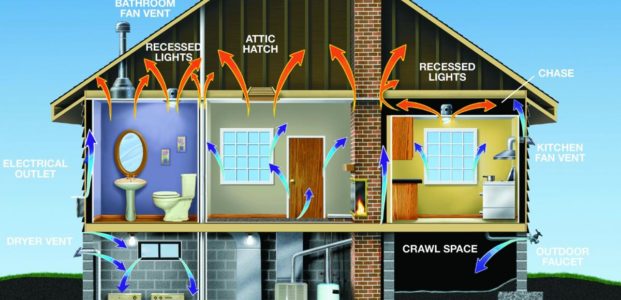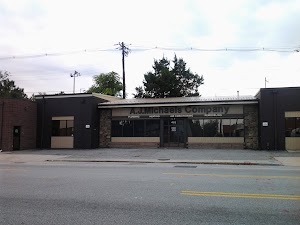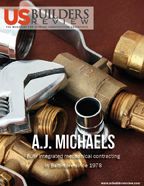
Indoor Air Quality & Ventilation
Current ASHRAE home energy efficiency standards now require all homes to be air sealed as tight as possible. In addition, most new homes are built to be very air tight to begin with. From an efficiency standpoint, this is great, however the tradeoff is that homes lack adequate fresh air ventilation which can lead to poor indoor air quality.
The installation of some type of ventilation system that allows for the removal of stale, polluted air and replaces it with fresh outdoor air without using extra energy to heat or cool the fresh air is often needed.
How can you determine if your home is too air tight?
1) Have a blower door test performed as part of an energy audit. This test will calculate air changes per hour (ACH) to determine how much your home is "breathing" and if it meets minimum safety standards.
2) Assess how long odors linger in your home. The longer an odor lingers, the more airtight a home is. Odors from cooking, car exhaust fumes from a garage and paint or other chemical fumes from common household materials that remain are good examples that ventilation may be needed.
3) Identify if you or your family experience allergies, asthma and/or other health related concerns as a result of poor ventilation. Dangerous levels of mold, dust, pollen, carbon monoxide, radon and other pollutents can all contribute to poor indoor air quality and poor health.
4) Determine if your home's heating and/or cooking equipment is adequately ventilated. Combustion appliances such as gas-fired furnaces, fireplaces, ovens, stoves, and water heaters cause indoor air pollution. Your gas range should have a hood and your stove should vent to the outside. Garages attached to the house should be adequately vented.
A variety of mechanical ventilation solutions are available depending on an individual home’s ventilation needs. This could include simply adding an exhaust fan to installing an energy recovery ventilator in more extreme situations.
A.J. Michaels is experienced and licensed to evaluate, recommend and install ventilation and other home performance solutions. To schedule a home energy audit and to discuss your ventilation and home performance needs, contact A.J. Michaels today.











